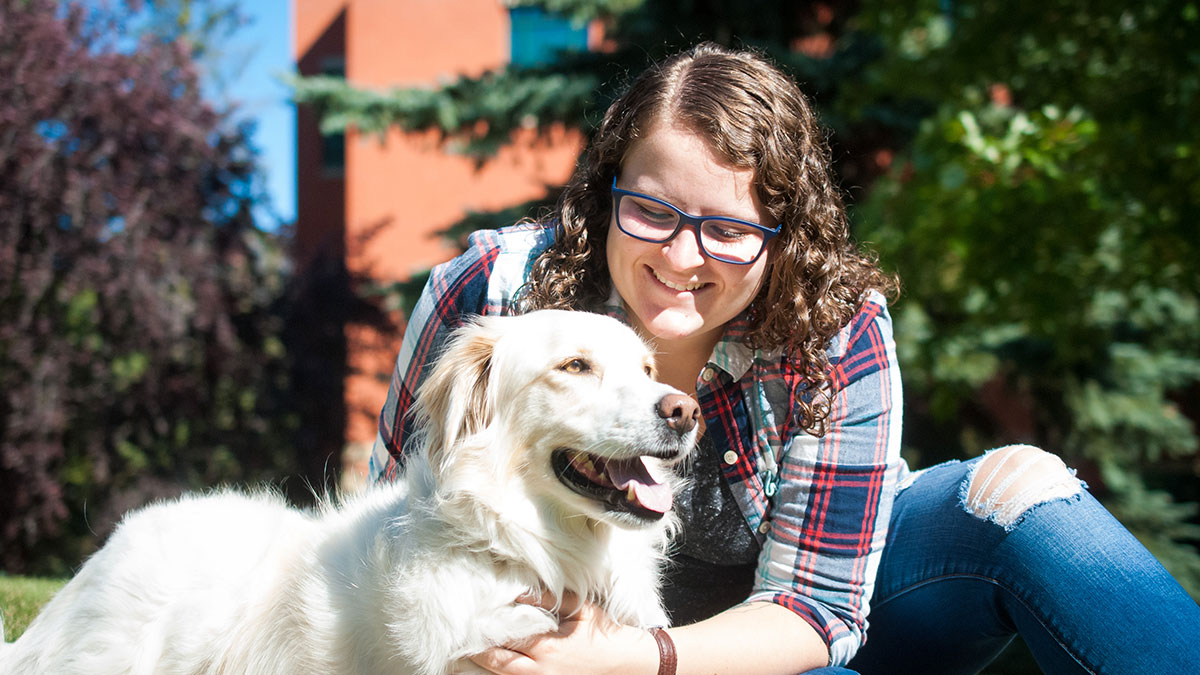Orientation: Pet Therapy
 Alex Patterson
Alex PattersonFor many students, university life introduces a new level of independence. It can also bring on new levels of loneliness, which some combat by getting a pet. However, a lot of landlords (University Residence included) don’t permit any companion animals. Perhaps it’s for the better — most pets require a large amount of attention that students don’t have the time to offer. But there exist alternatives that are much easier to work into academic life.
Dogs
The thing about your classic pet dog is that it’s high maintenance. Though they are expressional and are relatively easy to bond with, the downside is they need a lot of time to create such a bond. Most breeds need daily walks to stay in shape and burn off energy, this applies in the winter as well as the summer. Besides being expensive time-wise, dogs also need high-quality food and vet check-ups to stay healthy, which adds up. Another thing to keep in mind is your carpet and furniture, which are easy targets for destruction. For someone trying to keep up in classes, self-care, and social life, full ownership of a canine is often a bad idea. Thankfully, the university and the city of Edmonton offer alternatives.
Furry Friends Program – Offered by the Chimo Animal Assisted Wellness & Learning Society and the Office of the Dean of Students, this program brings in therapy animals to campus locations. Times and dates are posted on the program’s website as well as the Office of the Dean of Students’ Twitter and Facebook. The service is drop-in, students just show up and give attention to the animal volunteers.
Ruby the Science Dog – This little dog can be found at the Faculty of Science office in CCIS once a week to help students de-stress. Great for post-lab exhaustion.
Cats
A lot of apartments that don’t allow dogs will allow cats. And for some, this can be a great choice. Cats still require attention, but not to the same degree as dogs as no walking is needed. Like dogs, they need high-quality food and the odd vet checkup to keep healthy (low quality diets lead to health problems down the road). Cats are content in small space — IF you keep up on vacuuming shed hair and scooping the litter box. For some students living on their own, regular cleaning is a fair trade for the presence a cat will bring into the space.
Edmonton Humane Society
Dogs and cats waiting to be adopted are still in need of attention, and students (age 18 or over) can volunteer to do just that. The shelter is located in the northwest of the city, so getting requires bussing or driving. Volunteers need to be able to drop-in for at least 2 hours a week for 6 months. It’s important to note that there is a waitlist for volunteers – if this is something you’d be interested in doing, apply in advance!
Small Animals
If you live off campus, caged pets can be an option, but check in your lease agreement if you’re renting! Fish tanks are frequently allowed and aren’t defined as pets in many lease agreements. It doesn’t take much to get a basic setup going, and it’s easy to find cheap tanks and on Kijiji. Siamese fighting fish, or Betta fish, are good beginner fish. Rodents are quiet but need to be fed daily and cleaned frequently. And if they don’t creep you out, certain reptiles make great low-maintenance pets (ball pythons and crested geckos are both great beginner choices). Different animals work for different people, so it is absolutely essential that you do plenty of research before deciding on a pet.




